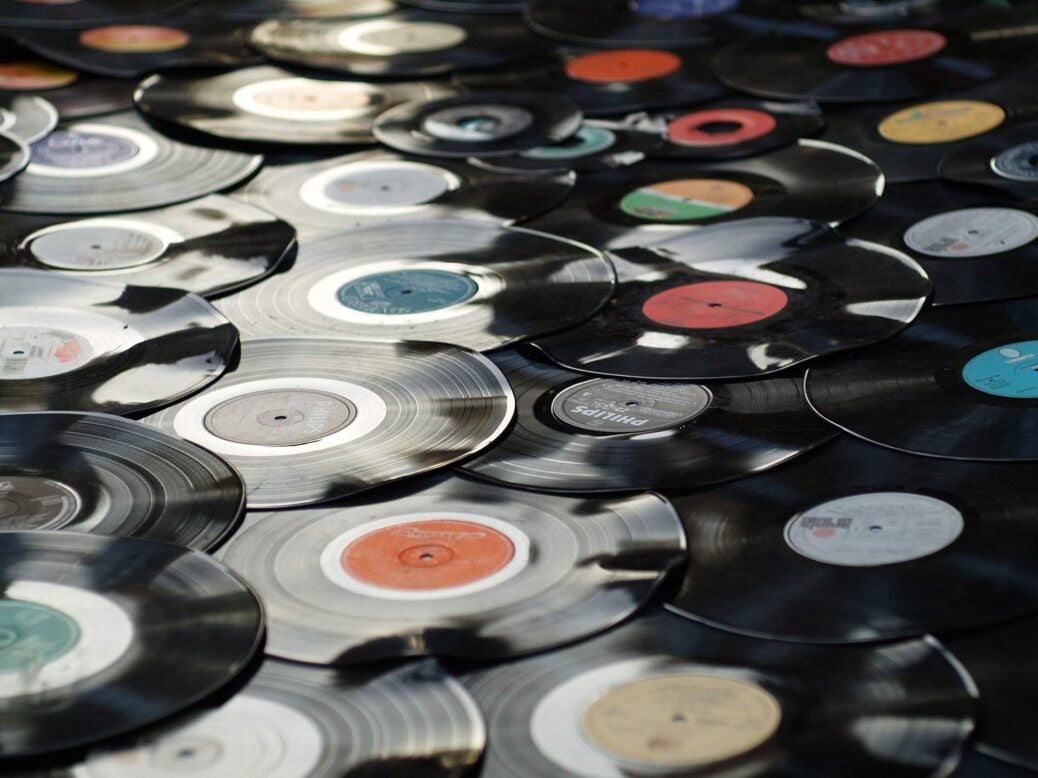
Now music – and, perhaps, poetry too – is just everywhere and always. Everything is the sound of now
What’s your favourite song of all time? What’s your favourite poem? I’d be prepared to bet that, like me, the answer to both of those questions will be songs or poems that you loved between the ages of 15 and 19.
For most of us, there’s no engagement with pop music or poetry quite so intense as the one we make in youth and young adulthood. You may love a song you’ve heard in the last couple of years – but it’s very unlikely that it will ever mean as much to you as, say, the Smiths did when you were cresting your teens. Nothing you hear in middle age will feel to you like it could actually save your life, or define it.
These aren’t just my theories. The demographics of the record-buying public, at least in the second half of the 20th century, seem to confirm it. Young people buy new songs by new bands. Young people listen to new music.
Older folk listen to the music that was new when they were young – as witness the multimillion-pound nostalgia circuit, the classic rock stations and classic rock magazines, the paunchy dads and saggy-kneed mums who’ll drop two or three hundred quid to see Kate Bush, or Pink Floyd, or Carter USM one more time.
I don’t say this to sneer. I for one haven’t really noticed a single new song since the Pixies broke up; and though I can quote screeds of Auden and Lowell and Bishop by heart, I seldom buy a new poetry book from one year to the next.
Not long ago I had the great pleasure of talking to Annie Nightingale for the podcast I host. When you talk to Annie – who was pals with the actual Beatles when they were just becoming famous – it becomes clear that she can be just as excited by listening to a new track from Billie Eilish now as she was the first time she heard ‘Instant Karma’. She listens to everything like a teenager.
That’s some sort of a superpower.
Most of us – as Annie knows – aren’t like that. Yet it isn’t – at least not quite – the same for books, or paintings, or even classical music. There are many things whose cooler pleasures you will dig in middle age in a way you never did as a young’un. So why pop and poetry in particular?
There’s something, perhaps, in the effect of the rhythm; the way in which pop music – and, for those into it, poetry – connect with the emotions in a very direct way.
‘Poets die adolescents, their beat embalms them,’ wrote Lowell. The stakes just don’t seem that high when you’re fully grown and there’s putting out the bins to worry about. And, of course, there’s the tribal way that teenagers have always organised their identities around music: the tribes of emos and grebos and grime kids and goths, the mods and rockers. Loving a song came with a friendship group and a T-shirt and a haircut.
And, of course, both artforms are directly linked to sex – which does have a bit of a way of preoccupying teenagers. But what I wonder, a little, is whether what I have described is an eternal verity or a weird little blip in human history that went on for not much longer than our lifetimes. The flattening effect of digital culture could – potentially – leave it an artefact of the past. Do the kids wait for new singles to drop in the same way?
I kinda doubt it. The NME and Melody Maker, Smash Hits and Top of the Pops, treated music as news. Now music – and, perhaps, poetry too – is just everywhere and always. Every song ever made, pretty much, is available online – so the new stuff doesn’t have that distinct sound of now. Everything’s the sound of now. And – though this is by no means a bad thing – rather than erect fences around genres marked ‘punk’ or ‘new romantic’ or ‘boy-band’ or ‘country’, the mash-up and sampling culture has made music a great open patchwork of borrowings and influences.
If I ask my 11-year-old daughter, 30 years from now, what her favourite song is, will it be a song from the early years of the 2020s?
I would no longer feel confident in betting on it. Perhaps, rather, she’ll say words to the effect of: ‘Absolute belter. Someone called Elvis. My daughter just turned me on to it after hearing it on Annie Nightingale.’
More Sam Leith
How Homeland tracked the temper of our times






